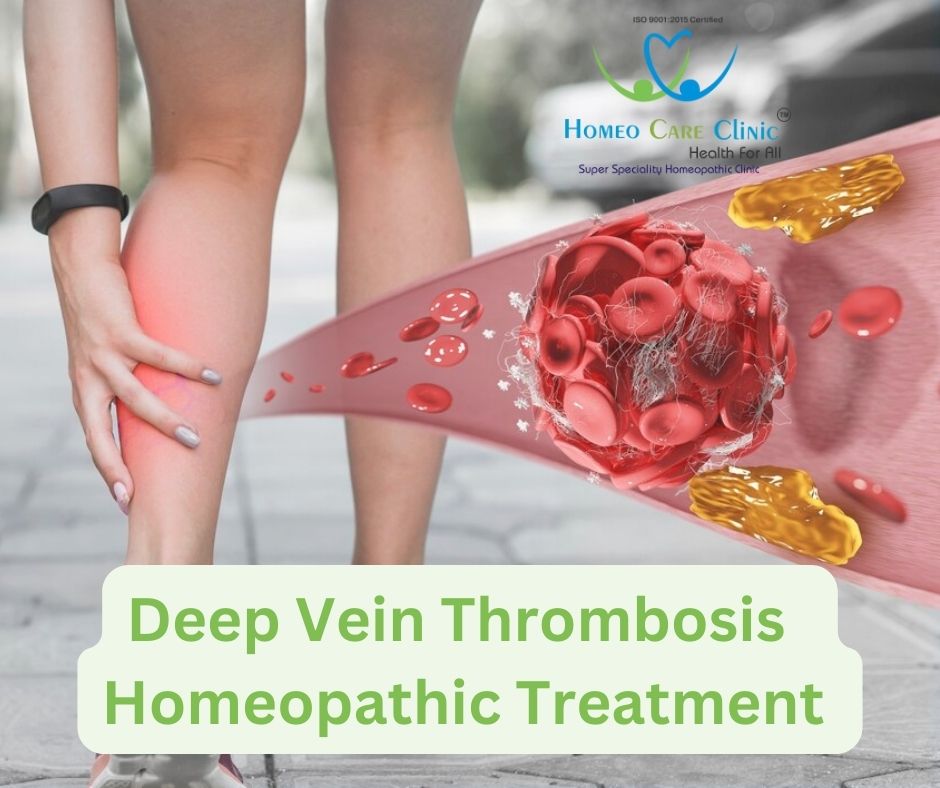Introduction:
Deep Vein Thrombosis (DVT) is a serious medical condition characterized by the formation of blood clots within deep veins, typically in the legs. These clots can pose significant health risks if they dislodge and travel to vital organs, leading to potentially life-threatening complications like pulmonary embolism.
Causes of Deep Vein Thrombosis:
DVT often arises from a combination of factors including prolonged immobility, injury or surgery, genetic predisposition, hormonal influences (such as birth control pills or hormone replacement therapy), and certain medical conditions like cancer or clotting disorders.
Symptoms of Deep Vein Thrombosis:
Symptoms of DVT may include swelling, pain, warmth, and redness in the affected limb. However, it’s important to note that not all individuals with DVT experience symptoms, making it crucial to be aware of risk factors and seek medical attention promptly if any concerning signs arise.
Conventional Medicines Approach:
Conventional treatment for DVT typically involves anticoagulant medications such as heparin or warfarin to prevent clot growth and reduce the risk of complications. While these medications are effective, they come with potential side effects including bleeding, bruising, and interactions with other drugs. Moreover, long-term use of anticoagulants may necessitate frequent monitoring and lifestyle adjustments.
Advantages of Homeopathy:
Homeopathy offers a holistic approach to healthcare, focusing on individualized treatment based on the principle of “like cures like” and the concept of vital force. Homeopathic remedies for DVT aim to address underlying imbalances in the body, promote natural healing, and minimize the risk of recurrence without the adverse effects associated with conventional medications.
Five Homeopathic Remedies for Deep Vein Thrombosis:
Arnica Montana: This remedy is commonly used for bruising, swelling, and pain associated with traumatic injuries or surgery.
Hamamelis virginiana: Useful for relieving aching, soreness, and heaviness in the legs, particularly when symptoms worsen with warmth and improve with cold applications.
Lachesis muta: Indicated for individuals with a tendency towards blood clotting disorders, especially when symptoms are aggravated on the left side and by heat.
Calcarea fluorica: Recommended for varicose veins and hard, enlarged veins with a feeling of constriction or tightness.
Vipera berus: Helpful for addressing venous congestion and inflammation, particularly in cases where there is marked swelling and discoloration of the affected limb.
FAQs about Homeopathy for Deep Vein Thrombosis:
Q: Can homeopathy be used alongside conventional treatment for DVT?
A: Yes, homeopathy can complement conventional treatment by addressing individual symptoms and promoting overall well-being. However, it’s essential to consult with a qualified homeopath for personalized guidance.
Q: How long does it take to see results with homeopathic treatment?
A: The duration of treatment varies depending on the individual’s response to remedies and the severity of the condition. Some individuals may experience relief of symptoms relatively quickly, while others may require more prolonged treatment.
Q: Are homeopathic remedies safe to use?
A: When prescribed by a qualified homeopath and used appropriately, homeopathic remedies are generally safe and well-tolerated, with minimal risk of side effects or interactions with other medications.
conclusion:
In conclusion, Homeo Care Clinic offers a holistic approach to treating Deep vein thrombosis. The remedies mentioned above can treat the underlying causes of the condition and offer relief from the discomfort. However, it is important to consult a qualified homeopathic practitioner for the correct dosage and duration of treatment. Homeo Care Clinic provides comprehensive care for various ailments, including Deep vein thrombosis, and offers customized treatment plans based on individual requirements.






